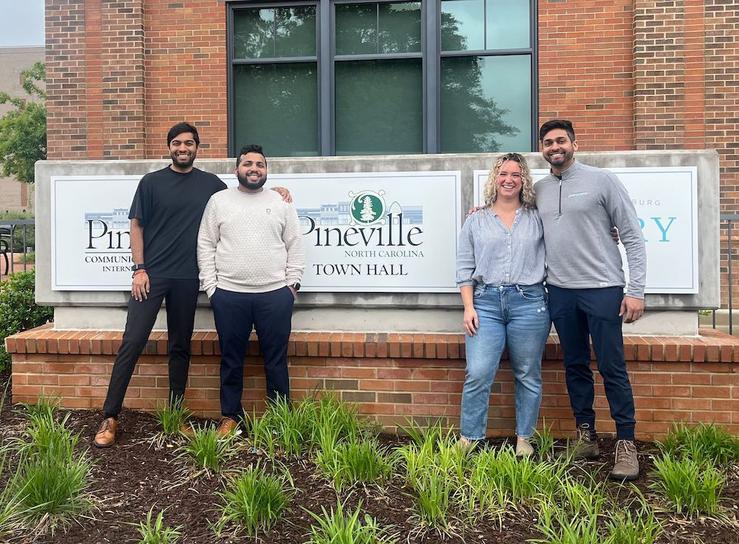The Scoop
Silicon Valley has historically shied away from building technologies for slow, fragmented local governments. But with a staffing crisis and work overload, city and county administrators are among the customers who could use them the most.
New York-based startup Polimorphic, which is trying to fill that gap by creating chatbots and other AI-powered support services for local governments, has raised $18.6 million in Series A funding, the company exclusively told Semafor. Venture capital heavyweight General Catalyst led the round, with additional contributions from early stage investment firms M13 and Shine.
“Folks underestimate how critical a lot of local government and state agency work is,” Polimorphic co-founder and CEO Parth Shah told Semafor. “It’s not the public servant’s fault. They’re trying their best. They just haven’t had the right systems.”
The new round brings the startup’s total investment to $28 million. Polimorphic did not disclose its valuation, but PitchBook estimates it around $70 million. The funds will go towards hiring salespeople and support staff for Polimorphic’s expansion into new states, Shah said.
General Catalyst partner Sreyas Misra said Polimorphic could become the next system of record for local government. “From DMV requests to social services, most processes still rely on paper or legacy systems,” he told Semafor via email. “We’re excited to back a team building mission-critical infrastructure for one of the largest and most underserved markets in tech.”
Step Back
Of their many disparate responsibilities, local municipalities and counties often manage public safety organizations, operate utilities, and administer food stamps — even approving backyard pools and fences in many areas. The worker shortage facing many local governments, exacerbated by an aging population and competitive private sector salaries, has slowed the pace of necessary permit approvals and contributed to employee burnout.
As a result, administrative employees end up doing the kind of “laundry and dishes” work that can be completed by AI, like processing forms and giving status updates on a particular resident’s permit application, Shah said. What falls through the cracks, he added, is the kind of work that has a real impact on people’s lives — like organizing community events and referring eligible individuals to helpful government- and nonprofit-sponsored programs.
Polimorphic competes with other chatbot providers, including Norway-based startup Boost.ai and IBM, which worked with the City of Austin, Texas, to provide information related to COVID-19 using its watsonx virtual assistant.
Know More
Polimorphic’s products include a website chatbot, AI-powered phone service, and agents that review applications. Its technology can complete administrative tasks like reaching out to residents who incorrectly filled out their forms and updating individuals on their permit application status. The technology supports more than 75 languages.
For the basic website and phone service bots, Polimorphic charges based on the area’s population — costing as little as a few hundred dollars each month, Shah said. For its additional services, it charges based on the number of users.
Each local government bot is trained on hundreds of pages of local regulations. It must decipher which responsibilities belong to different levels of government — like cities, counties, townships, or special districts, depending on the state. In places where both a city and county subscribe to Polimorphic’s service, it can better route residents to the departments they are looking for. The company says its customers have reduced the number of voicemail messages they receive by 90% due to its voice assistant helping residents answer their questions.
Notable
- A new Texas law requires the government clearly disclose when individuals are interacting with an AI system while using a state agency website. The rule intends to promote transparency and trust in the government’s adoption of AI.
- Chatbots that scrape the internet to provide information on local events and procedures are prone to errors because of incorrect information online. A ChatGPT-powered assistant for residents of Osaka, Japan, gained notoriety online two years ago for hallucinating the cancellations and date changes of events.


